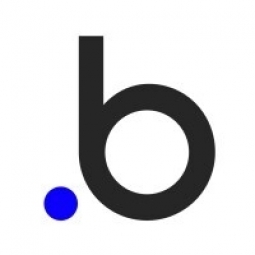Technology Category
- Analytics & Modeling - Machine Learning
- Application Infrastructure & Middleware - Middleware, SDKs & Libraries
Applicable Industries
- Cement
- Equipment & Machinery
Applicable Functions
- Product Research & Development
Use Cases
- Building Automation & Control
- Time Sensitive Networking
Services
- System Integration
About The Customer
JustOKRs is targeted towards startups with 10 to 100 employees running on Google Apps. These startups are looking for an efficient and cost-effective tool to manage their professional objectives and key results (OKRs). The tool is designed to be easy to use, with demo OKR data loaded upon sign up to help users understand the product and how OKRs work. Users can create their own OKRs for the company, teams, and individuals, and track progress, set status, and post updates easily. At the end of each quarter, users can grade their OKRs and share their results with the rest of the company.
The Challenge
JustOKRs was founded by Chris Wagner with the aim of providing an efficient tool for managing professional objectives and key results (OKRs) for companies, teams, and individuals. The challenge was that most popular OKR software was expensive, bloated, and often lost focus on performance management instead of concentrating on making a really great OKR tool. The goal was to create a tool that was laser-focused on only making the best OKR tool, inspired by the ease of using Google Docs or Sheets to track OKRs. The tool needed to add the ability to easily score OKRs, assign ownership, and align OKRs across a company.
The Solution
JustOKRs was built on Bubble, a powerful no-code platform that saved time and development costs. When a user first signs up, their account is loaded with demo OKR data to help them better understand the product and how OKRs work. They can then create their own OKRs for the company, teams, and individuals. Once OKRs are set for a quarter, the team can easily track progress, set the status, and post updates on JustOKRs or using the Slack integration. At the end of the quarter, users can grade their OKRs and share their results with the rest of the company. The next step for JustOKRs is to build on the momentum and promote the tool to startups with 10 - 100 employees running on Google Apps. The biggest challenge to solve with OKRs is that creating them is hard and time-consuming, so the focus is on finding innovative ways to make creating OKRs as easy as possible.
Operational Impact
Quantitative Benefit

Case Study missing?
Start adding your own!
Register with your work email and create a new case study profile for your business.
Related Case Studies.

Case Study
Smart Water Filtration Systems
Before working with Ayla Networks, Ozner was already using cloud connectivity to identify and solve water-filtration system malfunctions as well as to monitor filter cartridges for replacements.But, in June 2015, Ozner executives talked with Ayla about how the company might further improve its water systems with IoT technology. They liked what they heard from Ayla, but the executives needed to be sure that Ayla’s Agile IoT Platform provided the security and reliability Ozner required.

Case Study
IoT enabled Fleet Management with MindSphere
In view of growing competition, Gämmerler had a strong need to remain competitive via process optimization, reliability and gentle handling of printed products, even at highest press speeds. In addition, a digitalization initiative also included developing a key differentiation via data-driven services offers.

Case Study
Predictive Maintenance for Industrial Chillers
For global leaders in the industrial chiller manufacturing, reliability of the entire production process is of the utmost importance. Chillers are refrigeration systems that produce ice water to provide cooling for a process or industrial application. One of those leaders sought a way to respond to asset performance issues, even before they occur. The intelligence to guarantee maximum reliability of cooling devices is embedded (pre-alarming). A pre-alarming phase means that the cooling device still works, but symptoms may appear, telling manufacturers that a failure is likely to occur in the near future. Chillers who are not internet connected at that moment, provide little insight in this pre-alarming phase.

Case Study
Premium Appliance Producer Innovates with Internet of Everything
Sub-Zero faced the largest product launch in the company’s history:It wanted to launch 60 new products as scheduled while simultaneously opening a new “greenfield” production facility, yet still adhering to stringent quality requirements and manage issues from new supply-chain partners. A the same time, it wanted to increase staff productivity time and collaboration while reducing travel and costs.

Case Study
System 800xA at Indian Cement Plants
Chettinad Cement recognized that further efficiencies could be achieved in its cement manufacturing process. It looked to investing in comprehensive operational and control technologies to manage and derive productivity and energy efficiency gains from the assets on Line 2, their second plant in India.

Case Study
Integration of PLC with IoT for Bosch Rexroth
The application arises from the need to monitor and anticipate the problems of one or more machines managed by a PLC. These problems, often resulting from the accumulation over time of small discrepancies, require, when they occur, ex post technical operations maintenance.



